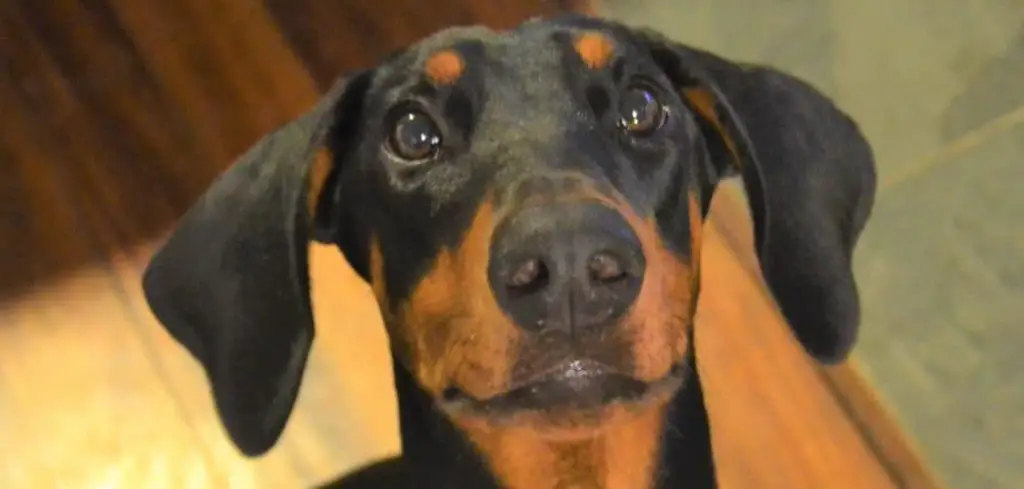It can be worrying to notice that your dog is drinking large amounts of water during the night. While thirst is normal, excessive nighttime drinking can sometimes point to an underlying issue that requires attention.
We outline the common causes of excessive thirst in dogs at night, what you can do, and when to seek veterinary help.
Dog Excessively Thirsty at Night — Why It Happens
A dog may excessively be thirsty at night due to conditions such as diabetes, kidney disease, hormonal imbalances caused by illnesses such as Cushing’s disease, and certain medications which can make a dog crave more water than usual. Environmental factors, like warmer nights or salty foods, can also play a role, but persistent excessive thirst should be taken seriously.

Dog Excessively Thirsty at Night: Common Causes
Diabetes Mellitus
When a dog develops diabetes, the body cannot properly regulate blood sugar. High sugar levels spill into the urine, pulling water with it.
This results in frequent urination and an increased drive to drink water. Dogs with diabetes may also show weight loss, increased appetite, or fatigue.
Nighttime thirst is often one of the first noticeable signs, making it important to seek veterinary evaluation quickly.
Read more: Dog Drooling and Licking Excessively at Night (Why it happens at night)
Kidney Disease
The kidneys filter waste and regulate fluid balance. When they stop functioning properly, dogs may urinate more frequently, which leads to increased thirst.
Owners often notice their dogs drinking large amounts of water, particularly at night, when the home is quieter.
Other signs can include weight loss, decreased appetite, vomiting, or bad breath. Kidney disease can range from early, manageable stages to severe, life-threatening conditions.
Cushing’s Disease
Cushing’s disease occurs when the body produces too much cortisol, a stress hormone.
This hormone imbalance affects metabolism and causes dogs to drink excessively, urinate frequently, and often eat more than usual.
Many owners first notice their dogs waking at night to drink or needing to go outside more often. Left untreated, Cushing’s can weaken the immune system and impact quality of life.
Urinary Tract Infection (UTI)
A urinary tract infection can irritate the bladder and cause dogs to urinate frequently. To compensate, they drink more water, including at night.
UTIs may also cause accidents indoors, blood in the urine, or discomfort while urinating. While a UTI might seem minor, it can progress to kidney infections if not treated promptly.
Medications or Diet
Some medications, such as steroids or diuretics, naturally increase thirst. Similarly, eating salty foods or treats can make dogs drink more, often leading to nighttime water bowl refills.
If the increase in thirst started after a new medication or dietary change, this may explain the behavior. However, you should still check with your vet to confirm whether the change is expected or concerning.
Heat and Dehydration
Environmental factors like hot nights or a dog being more active during the evening can also lead to greater water intake.
Dogs cool themselves primarily through panting, which leads to fluid loss. While this can cause occasional nighttime thirst, it usually does not persist daily. If it does, a medical cause should be investigated.
What to Do If Your Dog Is Excessively Thirsty at Night
If your dog is suddenly drinking more at night, first make sure fresh, clean water is always available. Restricting access to water can make health problems worse.
Keep track of how much water your dog drinks in a 24-hour period. This can help your veterinarian determine if the amount is excessive. A sudden change in thirst patterns is more concerning than gradual increases, so note when the behavior started.
Review any recent changes in diet, medications, or activity. If your dog is on a new treatment, ask your vet whether increased thirst is expected. Likewise, evaluate whether environmental conditions, like heat, could be influencing water needs.
Avoid giving overly salty foods or table scraps, as these can worsen thirst and disrupt your dog’s hydration. Instead, stick with a balanced, veterinarian-recommended diet.
Finally, schedule a veterinary checkup if the behavior persists for more than a few nights, or sooner if other symptoms appear alongside the thirst.
When to Call or Visit Your Vet
You should contact your veterinarian promptly if your dog’s excessive nighttime thirst is accompanied by other symptoms such as vomiting, diarrhea, weight loss, lethargy, or increased urination. These signs often indicate an underlying medical issue that needs diagnosis.
Frequent accidents in the house, straining to urinate, or blood in the urine should also trigger an immediate call to the vet. These could point to urinary tract issues that require treatment.
If your dog seems weak, disoriented, or refuses to eat, do not wait. Excessive thirst combined with systemic illness can signal diabetes complications or kidney failure, both of which are emergencies.
Even if thirst is the only symptom, persistent or worsening changes warrant a veterinary visit. Early testing can help catch conditions like kidney disease or diabetes before they progress.
Read more: Dog Excessively Thirsty (When it’s serious)
Key Takeaway
Excessive nighttime thirst in dogs can range from a simple response to heat or salty foods to more serious conditions like diabetes, kidney disease, or Cushing’s.
While occasional increased drinking may not be alarming, persistent changes always deserve attention.
Make sure your dog has access to clean water, monitor how much they drink, and keep a record of any other changes in behavior or health.
Most importantly, if your dog’s thirst continues or is paired with other symptoms, schedule a veterinary checkup. Catching the cause early can make a big difference in treatment and your dog’s overall wellbeing.
